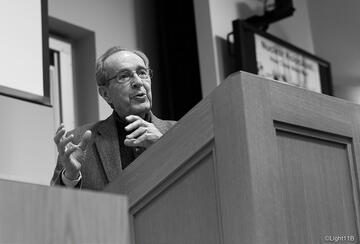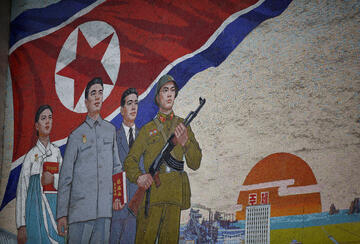Sub-Saharan Africa
Europe
Eastern Europe
Middle East and North Africa
Western Europe
Asia-Pacific
The Americas
Caribbean
Antigua & Barbuda
Bahamas
Barbados
Central America
Belize
Costa Rica
Cuba
Dominica
Dominican Republic
El Salvador
Grenada
Guatemala
Haiti
Honduras
Jamaica
Nicaragua
Panama
St. Kitts & Nevis
Northeast Asia
Japan
St. Lucia
St. Vincent & the Grenadines
Trinidad & Tobago
Oceania
Australia
Southeast Asia
Brunei
Cambodia
China
Fiji
Indonesia
Kiribati
Laos
Malaysia
Marshall Islands
Micronesia
Mongolia
Burma
Nauru
New Zealand
North Korea
Palau
Papua New Guinea
Philippines
Samoa
Singapore
Solomon Islands
South Korea
Taiwan
Thailand
East Timor
Tonga
Tuvalu
Vanuatu
Vietnam
Albania
Iberian Peninsula
Andorra
Central Europe
Austria
Russia and Eurasia
Belarus
Belgium
Bosnia & Herzegovina
Bulgaria
Croatia
Cyprus
Czech Republic
Scandinavia and Baltic Rim
Denmark
Estonia
Finland
France
Germany
Greece
Hungary
Iceland
Ireland
Italy
Latvia
Lithuania
Luxembourg
Liechtenstein
Macedonia
Malta
Monaco
Montenegro
Netherlands
Norway
Poland
Portugal
Romania
San Marino
Serbia
Slovakia
Slovenia
Spain
Sweden
Switzerland
Turkey
United Kingdom
Algeria
Bahrain
Egypt
Iran
Iraq
Israel
Jordan
Kuwait
Lebanon
Libya
Morocco
Oman
Qatar
Saudi Arabia
Syria
Tunisia
United Arab Emirates
Yemen
North America
Canada
Mexico
United States
Armenia
Azerbaijan
Georgia
Kazakhstan
Kyrgyzstan
Moldova
Russia
Tajikistan
Turkmenistan
Ukraine
Uzbekistan
South America
Argentina
Bolivia
Brazil
Chile
Colombia
Ecuador
Guyana
Paraguay
Peru
Suriname
Uruguay
Venezuela
South Asia
Afghanistan
Bangladesh
Bhutan
India
Maldives
Nepal
Pakistan
Sri Lanka
Angola
Benin
Botswana
Burkina Faso
Burundi
Cameroon
Cape Verde
Central African Republic
Chad
Comoros
Congo
Côte d'Ivoire
D.R. Congo
Equatorial Guinea
Eritrea
Ethiopia
Gabon
Gambia
Ghana
Guinea
Guinea-Bissau
Kenya
Lesotho
Liberia
Madagascar
Malawi
Mali
Mauritania
Mauritius
Mozambique
Namibia
Niger
Nigeria
Rwanda
Säo Tomé & Príncipe
Senegal
Seychelles
Sierra Leone
Somalia
South Africa
Sudan
Swaziland
Tanzania
Togo
Uganda
Zambia
Zimbabwe
Kosovo
Djibouti
South Sudan
Vatican City
International Relations
Energy
Security
Institutions and Organizations
Foreign Policy
International Law
International Development
Science and Technology
Business
Governance
Health and Medicine
Food Security
Elections
Homeland Security
Environment
Biosecurity
Democracy
Diplomacy
Disaster response
Cybersecurity
Entrepreneurship
Innovation
Investment
Democracy promotion
Policy Analysis
State-building
Coal
Cleantech
Natural gas
Nuclear Energy
Sustainable development
Migration and Citizenship
Protectionism
Trade
World Bank
World Trade Organization
Climate change
Kyoto Protocol
Human Rights
Comparative effectiveness research
Health Care
Health care institutions
Health policy
HIV/AIDS
Nutrition
Population health
Society
History
Torture convention
Globalization
Islam
NATO
Information Technology
Biofuels
Agricultural trade
Deforestation
Fisheries
Water
Agriculture policy
Ethnicity
Discrimination
Bioterrorism
Obesity
Aquaculture
Children's health
Diabetes
Electricity
Natural Resources
Disease
Kidnapping
Corruption
Arms Smuggling
Climate
Conflict
Economic Affairs
Education
Energy and Climate Policy
Energy Infrastructure
Energy Services
Foreign Aid
Fossil Fuels
Gender
Global Health
Health Outcomes
Religion
Renewable Resources
Crime
Culture
Nuclear Risk
Public Health
European Union
Health Care Reform
Media
Military
Negotiation
Peacekeeping
Rule of Law
Borders
Health and the Environment
Smoking
Food Markets
Hunger
Poverty
Arms Control
Civil Wars
Drug trafficking
Missiles
Nuclear Safety
Terrorism
Violence
Cap and Trade
Nuclear policy
Agriculture
Natural gas
Oil
Demographics
Migration and Citizenship
Hypertension
Aging
Intelligence
Palm Oil
Health
Vision Care
Early Childhood Development
Technology
In the Classroom
Migration
Inequality
Race
Inclusion and Exclusion
SAI
Staff
Publication Series
Shorenstein APARC Studies with Stanford University Press
APARC In-House Series
AHPP Working Paper Series
CDDRL 20th Anniversary
Courtesy Faculty
Israel Fellows
Takedown
Social Media Lab
2024 MIP Class
Masters in International Policy
Capstone
Meet the Class
Graduation
Profile
Admissions
Alumni
Internship Blog
Conference Blog
Class of 2024
Class of 2025
Infrastructure
Walter H. Shorenstein Asia-Pacific Research Center
Center for Health Policy / Department of Health Policy
Center for International Security and Cooperation
Center on Democracy, Development, and the Rule of Law
Freeman Spogli Institute for International Studies
The Europe Center
Center on Food Security and the Environment
Stanford Center at Peking University
Bechtel Conference Center At Encina Hall
Internal Center (Content Staging)
Cyber Center
Center on China’s Economy and Institutions
Program on Energy and Sustainable Development
Korea Program
Southeast Asia Program
Stanford Program on Regions of Innovation and Entrepreneurship
China Program
Stanford Program on International and Cross-Cultural Education
Global Affiliates Program
Asia Health Policy Program
Program on Human Rights
Rural Education Action Program
Arab Reform and Democracy Program
Draper Hills Summer Fellows Program
Program on Poverty and Governance
Japan Program
Stanford International Crime and Violence Lab
Austrian and Central European Program
European Governance
Europe and the Global Economy
Migration
France and the Francophone World
Iberian Studies Program
Industrial Affiliates Program
Program on American Democracy in Comparative Perspective
Taiwan Democracy Project
GDPI
Student Programs
Global Populisms
Ford Dorsey Master's Program in International Policy
Leadership Academy for Development
Public Problem Solving Program
Internet Observatory Program
Cyber GTG
Mappingmilitants cisac
European Security Initiative
Russian Power and Purpose in the 21st Century
Stanford Impact Labs
Program on Turkey Website
Stanford Existential Risks Initiative
Sipr
REDI
World House
Leadership Network for Change Program
Cyber Test
Governance of Emerging Technologies
Stanford U.S.-Russia Forum
Abstracts
Blogs
Books
Book Chapters
Case Studies
Conference Memos
Commentary
Dissertations
Journal Articles
News
Policy Briefs
Q&As
Testimonies
White Papers
Reports
Working Papers
Annual Reports
Brochures
Newsletters















